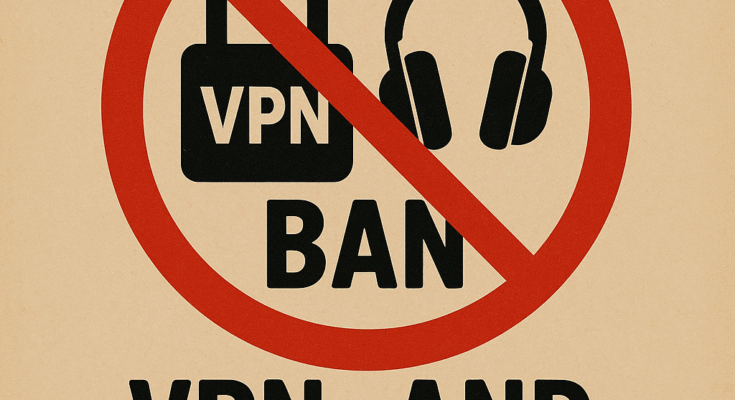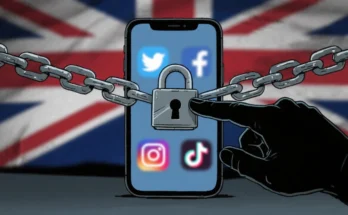Michigan residents may feel they are living in Afghanistan or North Korea soon, at least as their online freedoms are concerned, as a recently introduced bill aims to criminalize not only porn in the state, but also manga, ‘erotic ASMR’, and perhaps most disturbingly of all, VPNs.
House Bill 4938, also known as the “Anticorruption of Public Morals Act”, aims to prohibit the sharing, distributing, selling, or hosting of “prohibited material” on the internet within Michigan. This includes a wide range of adult and explicit content, with penalties including fines up to $125,000, up to 25 years in prison, and mandatory registration as a sex offender for violators. Internet service providers (ISPs) would be required to implement filters to block such material and “circumvention tools” like VPNs, with fines up to $500,000 for non-compliance. The bill doesn’t outright ban manga or adult material in all forms (e.g., physical books), but it targets online distribution. Proponents frame it as a way to protect children and combat human trafficking, but critics argue it’s overly broad, unconstitutional, and a threat to privacy and free speech. It’s part of a broader wave of conservative-led efforts to restrict online content, similar to proposals in other states and elements of Project 2025.
Who Is Behind It?
The bill is primarily sponsored by Republican State Rep. Josh Schriver (R-Oxford), a Christian Nationalist lawmaker who has previously advocated for banning birth control and teaching gun use in schools. Co-sponsors include fellow Republicans: Joseph Pavlov, Matthew Maddock, James DeSana, Joseph Fox, and Jennifer Wortz. Schriver has linked the bill to fighting human trafficking, claiming that shutting down porn would undermine it. It’s supported by conservative and religious groups focused on “family values,” but no major organizations have publicly endorsed it yet.
What It Will Ban Or Restrict
The bill doesn’t explicitly “ban VPNs” statewide for all uses, but it prohibits their promotion, sale, or use specifically to access prohibited material. ISPs must monitor and block “known circumvention tools” (defined as VPNs, proxy servers, or encrypted tunneling methods). This could indirectly restrict VPNs more broadly, as users often rely on them for privacy and bypassing geo-blocks.
- Adult Material: All forms of pornography, including videos, erotica, magazines, stories, manga, AI-generated content, live feeds, and sound clips. It covers depictions of sex acts (e.g., intercourse, oral sex, BDSM, group sex, penetration with toys).
- Other Content: Erotic ASMR, moaning or “sensual voice content,” and any depictions or descriptions of transgender people (framed as “a disconnection between biology and gender” or imitating the opposite biological sex via attire, cosmetics, or prosthetics). This could impact movies like Mrs. Doubtfire, Tootsie, or The Birdcage, as well as music videos and general entertainment.
- Exemptions: Peer-reviewed academic content and scientific/medical research are excluded.
- Enforcement and Penalties: Applies to anyone distributing or hosting such material online. For over 100 items, penalties escalate. ISPs must filter content, and promoting/selling VPNs for evasion is banned.
Unlike age-verification laws in states like Texas or Utah (which focus on minors), this bill would restrict access for everyone, not just children.
Who Is Opposing It?
There has been significant opposition, primarily from privacy advocates, free speech groups, and tech organizations.
- The Electronic Frontier Foundation (EFF) and ACLU of Michigan argue it violates First Amendment rights and could lead to mass surveillance, as users would need to submit personal data to access content.
- Tech companies and VPN providers like ExpressVPN have criticized it for potentially driving users to unsafe circumvention methods, increasing privacy risks.
- Comic and anime communities, including groups like the Comic Book Legal Defense Fund, oppose it due to fears of impacting artistic expression in manga and similar media.
- Public pushback has included petitions and social media campaigns, with over 10,000 signatures on Change.org petitions against it as of early 2025. Some Democratic lawmakers in Michigan have also voiced concerns about implementation costs and effectiveness.
Unlike age-verification laws in states like Texas or Utah (which focus on minors), this bill would restrict access for everyone, not just children.
Even the UK has ruled out banning VPNs (although they may ban them for under 18s). Only a handful of countries currently ban the use of VPNs, and these include the usual suspects such as North Korea and Russia. Whilst this bill might not in the end pass, it’s somewhat disturbing that an elected politician in a First World democracy can even suggest such a thing.


